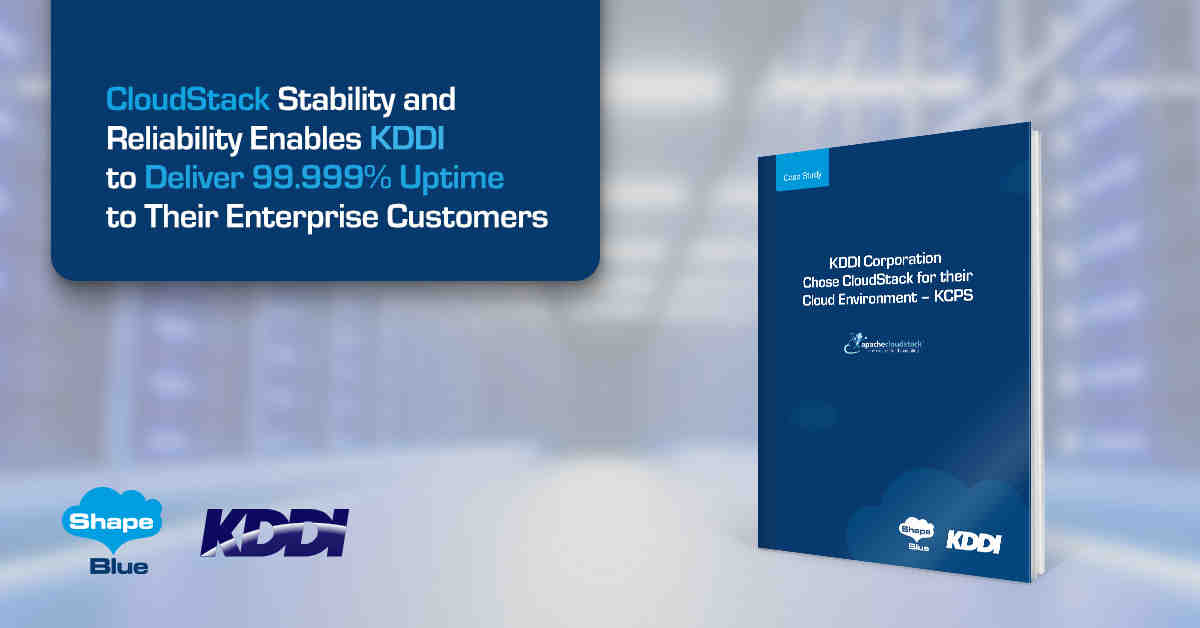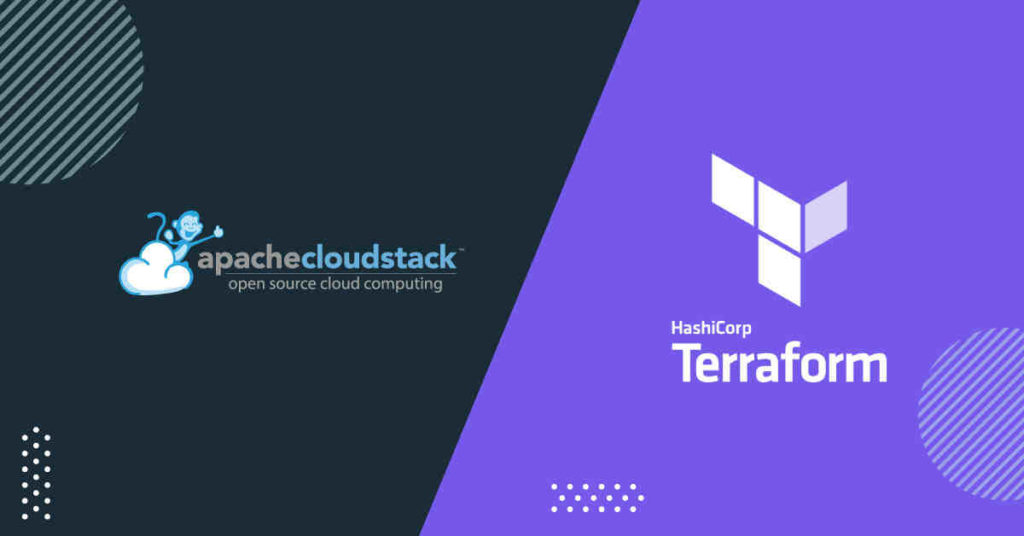SOFIA, Bulgaria – (BUSINESS WIRE) – StorPool Storage, a leading global storage software provider, today announced enhanced offerings for managed service providers (MSPs) looking to build efficient cloud platforms, simplify their infrastructures and manage resources more efficiently. These enrichments provide MSPs with the tools they need to build their cloud infrastructures to meet mission-critical workloads without the pain and challenges typically associated with legacy technologies.
Modern MSPs aim to excel and search for powerful and flexible next-generation technologies that optimize their infrastructure and solve the storage challenges they face. They want to grow their business and increase their margins with quality and reliable services that meet the needs of their customers and are easy to use. StorPool Storage provides the primary storage platform for MSPs that create clouds that run mission-critical workloads.
“Our goal is always to choose the right partners to build our solutions on, and StorPool has shown its excellence so far,” said Ed Butler, CEO of Amito. “StorPool is a rare combination of great technology and a dedicated and very capable support team.”
Recently recognized by HostingAdvice.com as a leader in block storage defined by distributed software for businesses, MSPs, and hosting providers, StorPool provides the tools and resources you need to build efficient cloud platforms, simplify infrastructures, and manage resources more efficiently. Businesses can streamline their operating costs by eliminating the overhead of IT administration while providing excellent performance and quality of service. Implementing StorPool’s advanced offerings means MSPs can focus more on growing their customer base and business instead of solving technology problems.
StorPool’s advanced offerings are ideal for MSPs that use their own cloud infrastructures to serve end-to-end Tier 1 workloads. StorPool partners typically offer custom managed solutions – managed private clouds, virtual private clouds, database service, desktop service, ERP / CRM / SCM software hosting, etc. – through standard cloud service provider offerings. As MSPs store more data with StorPool, they receive discounts on TB’s base price per month, which means they can either increase their profit margins or optimize prices for end customers.
“Our MSP customers tell us they like StorPool because it’s a good fit for their business,” said Alex Ivanov, product manager at StorPool Storage. “They understand the value of unloading difficult IT tasks because they do it for their customers. We do the same with them for storage, allowing MSPs to focus on delivering higher order value to their customers. Bring your data home with the technology you need, and pay as you grow without the hassle.
StorPool is accelerating the world by storing data more productively and helping businesses streamline their operations. Public and private cloud builders, such as MSPs and CSPs, use StorPool Storage as the foundation for their clouds, especially when scale and skill are required.
StorPool storage systems are ideal for storing and managing demanding primary workload data – databases, web servers, virtual desktops, real-time analytics and other mission-critical software. The primary storage platform under the hood provides thin capacity for your on-premises cloud workloads and applications. Native multi-site, multi-cluster, and BC / DR capabilities far outweigh hybrid and multi-cloud efforts.
For more information on how StorPool helps cloud builders create simpler, smarter and more efficient clouds, visit interested MSPs at https://storpool.com/storage-for-msp/
StorPool Storage is the primary storage platform designed for large-scale cloud infrastructure. This is the easiest way to convert sets of standard servers to primary or secondary storage systems. StorPool’s team has experience working with a variety of customers – managed service providers, hosting providers, cloud providers, companies and SaaS vendors. StorPool Storage is software that comes with a fully managed data storage service that turns standard hardware into fast, easily accessible, and scalable storage systems.
Is OpenNebula opensource?
OpenNebula is a free open source software solution for creating clouds and virtualizing data centers. On the same subject : Chicago-Based IT firm, Network It Easy Offering 24/7 Professional IT Managed Services. It is based on open technologies and is distributed under the Apache License 2.
Is OpenNebula a private cloud? This innovative model enables true hybrid and multi-cloud computing, leveraging the resources of different cloud and edge infrastructure providers and combining public and private cloud workload portability with integrated IT infrastructure and application management.
Which is better OpenStack or OpenNebula?
Although OpenStack now strives to be everything for everyone, it was created as an open source attempt to compete with Amazon Web Services (AWS). Thus, although OpenStack deals with the infrastructure provision segment; OpenNebula better meets the needs of Enterprise Cloud Computing. On the same subject : Syntax Taps Oracle Cloud Infrastructure as Strategic Platform for Multicloud Managed Services.
Is OpenNebula open-source?
OpenNebula CE is free and open source software released under version 2 of the Apache license. Read also : SmartStream’s Managed Services: Joining the Dots and Responding to Clients’ Demands. OpenNebula CE has free access to maintenance releases, but upgrades to newer smaller / large versions are only available to users with a non-commercial deployment or significant contribution to the OpenNebula community.
What is the use of OpenNebula?
OpenNebula is an open source management tool that helps virtualized data centers monitor private clouds, public clouds, and hybrid clouds. OpenNebula combines existing virtualization technologies with advanced features for multiple rentals, automated provisioning, and flexibility.
Where is Nebula cloud used?
Nebula is an open source cloud computing platform designed to provide an easily measurable and advanced alternative to building additional expensive data centers and to provide NASA scientists and researchers with an easier way to share large and complex databases with external partners and the public.
What is hypervisor used for?
A hypervisor, also known as a virtual machine monitor or VMM, is software that creates and operates virtual machines (VMs). A hypervisor allows a single host computer to support multiple guest VMs by virtually sharing its resources, such as memory and processing.
What is Netflix conductor?

Conductor is an open source workflow orchestration engine developed by Netflix. If you are a new user of Conductor, this previous blog post and documentation should help you get started and adjust.
What does Netflix Conductor do? Conductor provides existing system tasks, such as decisions, fork, join, sub-workflows, and SPI, that allow you to combine custom system tasks. We’ve added support for HTTP tasks to make it easier to call REST services.
How do you become a Netflix Conductor?
- Local conductor installation. Download and launch. Build and launch. Preconditions. Steps to build a conductor server. Check the code. Build and run the server. Build and launch the interface. Summary.
- Installation via Docker Compose.
- Basic concepts.
- Customer Use.
- Start the workflow.
What is a workflow orchestration engine?
The workflow engine facilitates the flow of information, tasks, and events. Workflow engines can also be called workflow orchestration engines. Workflow motors have three main functions: Checking the current state of the process: Check whether this is valid for the task at its current state.
What is an orchestration engine?
Orchestration allows the introduction and execution of fully interdependent workflows with external resources. The cloud-based engine manages complex cross-domain workflows that involve systems, companies, and firewalls, and processes, including exception handling.
What is an orchestration platform?
Container orchestration platforms are a set of tools needed by any large-scale organization. Container orchestration systems are needed to handle a wide range of containers and services, as well as to realize the benefits of CI / CD.
What is orchestration example?
Examples of modern orchestration products: Netflix Conductor, Camunda, Zeebe, Azure Logic Apps, Baker. Keep in mind that orchestration is a composite pattern that offers many ways to create complex service compositions.
What is Netflix Conductor written in?
The conductor server is written in Java and the API is open via HTTP and gRPC interfaces, which allows language diagnostic development. Netflix and the Java, Python, and Go communities make a set of client libraries available.
What does Netflix use Conductor for?
Distributed Workflow Visibility Many Netflix content and studio construction services rely on Conductor to efficiently process their business flows.
What is workflow orchestration?
Workflow orchestration is the automation of a workflow or multiple tasks. In other words, orchestration involves several automated operations to perform one important process or workflow.
What is Docker compose vs Kubernetes?

Governors and Docker Compose are both container orchestration frameworks. Governors operate containers on many virtual or real computers. Docker Compose handles containers on a single host machine.
Do you need a Docker composition for Kubernetes? We take you from Docker Compose to Kubernetes in a few steps. All you need is an existing docking device. yml file.
Which is better Docker compose or Kubernetes?
Docker Compose is simpler and more convenient in design than Kubernetes to get the application up and running quickly for local development workflows. All configurations needed to run a multi-container application are stored in a single file.
Is Kubernetes better than Docker compose?
For starters, Docker Compose is designed to run on a single host or cluster, while Governors have more flexibility to include multiple cloud environments and clusters. This advantage alone means that it is easier to scale at a certain point in Governors.
Can Kubernetes replace Docker compose?
To replace Docker-Compose with Kubernetes, I need to do five things: Create an image on site and run it in Kubernetes. Make changes to the application and implement it in Kubernetes. In Kubernetes, make the volume easily accessible to the container.
What is Docker compose equivalent in Kubernetes?
Compose is Docker Compose’s conversion tool for container orchestras, such as Kubernetes (or OpenShift).
Can Kubernetes replace Docker compose?
To replace Docker-Compose with Kubernetes, I need to do five things: Create an image on site and run it in Kubernetes. Make changes to the application and implement it in Kubernetes. In Kubernetes, make the volume easily accessible to the container.
What is the alternative for Docker compose?
Kubernetes, Docker, Docker Swarm, Helm and Ansible are the most popular alternatives and competitors to Docker Compose.
Can Kubernetes replace Docker compose?
To replace Docker-Compose with Kubernetes, I need to do five things: Create an image on site and run it in Kubernetes. Make changes to the application and implement it in Kubernetes. In Kubernetes, make the volume easily accessible to the container.
What can I use instead of Docker compose?
The best alternatives to Docker Compose
- Governors. The governors have an open source orchestration system for Docker containers. …
- Docker. …
- Docker Swarm. …
- Helm. …
- Possible. …
- Portiner. …
- Terraform. …
- minikube.
Does Kubernetes replace Docker?
Are Kubernetes vs Docker or Kubernetes and Docker – or both? In short, Docker is a suite of software development tools for creating, sharing, and running individual containers; Governors have a system for container-scale use.
What is the best cloud orchestration?

A definitive list of the best cloud orchestration tools
- Microsoft Azure Automation. Of course, the list starts with Microsoft Azure Automation. …
- Puppet. …
- BMC multi-cloud management. …
- Morpheus. …
- CloudHealth. …
- Chef. …
- Possible. …
- Openstack.
What is orchestration in the cloud? Cloud Orchestration is the automation of the tasks required to manage private and public cloud connections and workloads. Cloud orchestration technologies integrate automated tasks and processes into a workflow to perform specific business functions.
What are the two types of models for cloud orchestration?
Cloud orchestration includes two types of models: the single cloud model and the multi-cloud model. In the single cloud model, all applications created for the system run on the same IaaS platform (same cloud service provider).
What are the types of cloud deployment models?
There are four models of cloud deployment: public, private, community, and hybrid. Each deployment model is defined according to where the environmental infrastructure is located.
What is orchestration model?
Orchestration is the automated configuration, management, and coordination of computer systems, applications, and services. Orchestration makes it easier for IT to manage complex tasks and workflows. IT teams need to manage many servers and applications, but doing it manually is not a scalable strategy.
Is IaaS a cloud?

Infrastructure as a Service (IaaS) is a type of cloud computing service that provides essential computing, storage, and network resources on demand for a fee. IaaS is one of the four types of cloud services with software as a service (SaaS), platform as a service (PaaS), and no server.
What are the differences between PaaS IaaS and SaaS? In the case of a cloud, the infrastructure of the Cloud, the PaaS and the platform are limited to the middle charge. Le SaaS is the latest strategy for cloud computing, which is the most important logic or application.
Quels sont les éléments gérés par le cloud en IaaS ?
Daa le modèle IaaS, les utilisateurs gèrent les les applications, les données, les system d’exploitation, les middlewares et environnements d’exploitation. Le fournisseur de Solution d’IaaS is equipped with virtualization, stockage, réseaux and server systems.
Quels sont les services fournis par le cloud Service Provider dans le modèle IaaS ?
Infrastructure en tant que service (IaaS) includes services for cloud, server management, storage and storage. The platform en tant que service (PaaS) offers the most available service l’IaaS plus les système d’exploitation et les bases de données.
Comment fonctionne IaaS ?
Comments fonctionne l’IaaS? Dans un model IaaS classic, une entreprise (peu importe sa taille) uses services from computing, inventory and cloud services. Le fournisseur de Cloud offers services in the field of logistics and logistics.
Qui signifie SaaS ?
Definition of SaaS as a Service Software as a Service A SaaS solution (“Software as a Service”) is a logical solution that includes a cloud and organizational application. l’entreprise par un tiers, aussi appelé fournisseur de service.
Qu’est-ce qu’un exemple de SaaS ?
Parmi les principaux fournisseurs d’un logiciel SaaS, retrouve Salesforce, Oracle, IBM, Intuit or encore Microsoft.
Qui utilise IaaS ?
L’IaaS is a model for adapting the details of cloud computing that has been adapted to take advantage of the information resources available in the Internet, including the development of advanced infrastructure and the development of virtual solutions.
Qui signifie PaaS ?
The platform-as-a-service (PaaS) is a type of cloud computing service that allows customers and four-way services to be available to customers, the user is responsible for applications, commercial applications, and commercial applications. the construction and operation of the infrastructure in the process of …
Pourquoi PaaS ?
The solution PaaS vous permet d’économiser beaucoup de temps. The opposite solution is IaaS (infrastructure as a service).
Quelle est la différence entre le PaaS et le Serverless ?
Le Serverless is a plus in terms of PaaS: The structure is based on the year. This year, the payroll service is fixed for the use of in-service services.




